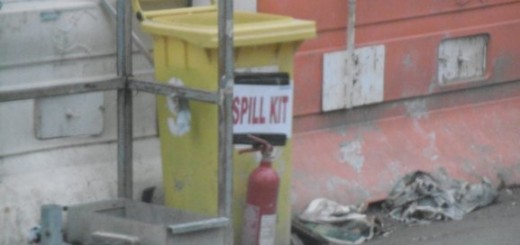Rescuing legal records. Success stories…
In May this year I published a blog of horror stories about poor records management leading to the loss of our legal heritage. I’m glad to now be able to list some success stories about the rescue of private sector records documenting our legal heritage.
Who is rescuing our legal records?
The National Archives, of course, is a massive collector of government and quasi-government legal records. Although its remit is not to collect private sector records, it does hold records of private legal bodies which have been nationalised, records of the courts and quasi-official papers of individuals who were prominent in the law and government (eg Judges’ notebooks).
Local authority archives are the true heroes. Despite drastically reduced resources they still manage to seek out and collect large quantities of private sector legal records of value relevant to their local area. They have saved many records of the following local institutions (as well as countless collections from individuals connected to the law):
- Citizens’ advice bureaux
- Law centres
- Law societies
- Chartered accountants’ societies
- Boards of conciliation and arbitration
- Law firms (both business records and client documents such as deeds and wills)
London Metropolitan Archives (LMA). The LMA makes every effort to rescue not only valuable records of institutions relevant to Greater London, but the records of nationally or internationally focused institutions which have their headquarters there. Legal records already saved for posterity by LMA include those of a number of London-based:
- Legal associations, societies and institutes
- Law firms (including the business records of 8 large London firms)
- Legal charities
- London Court of Arbitration
Higher Education (HE) repositories. Most HE archives will keep records of their departments and faculties, including of course legal. Some HE archives also have specialist collections policies which may include certain categories of legal records. The London School of Economics in particular holds many collections of legal records relating to womens’ legal rights in its Womens’ Library, whilst its Archives and Special Collections section holds the records of mediation institutions and campaigns for social justice and human rights. The Records of Legal Education Archives at IALS has for many years collected the records of both local and national institutions specialised to legal education, as well as the papers of individual law teachers.
Other specialist repositories which collect legal records include Lambeth Palace Library, which holds records of notaries and the Bishopsgate Institute Library which has the records of some legal campaign groups relevant to radical, social, labour, feminist and gay history in London.
Business and religious archives: many have in-house archives or have deposited records in archives; nearly all will include some legal records. Diocesan archives in particular hold large quantities of property deeds and related material, including records of property disputes, while businesses will have a legal department and/or employ the services as required of legal practitioners or law firms. For examples of archived legal records see the LRAR case study of alternative dispute resolution records in the Transport for London Corporate Archives or the on-line catalogues of any diocesan archives.
In-house archives of institutions connected to law: these are not as numerous as we would like, given the importance of the law in our national development, but do include some legal institutions holding records of incalculable value to researchers eg the institutional archives of the four Inns of Court, the Law Society and the Institute and Faculty of Actuaries. Some ancillary bodies such as Ede & Ravenscroft also have in-house archives. Astonishing no-shows appear to be barristers’ chambers and large law firms; LRAR was unable to discover a single barristers’ chambers or law firm, even in London with all its wealth, with an in-house professionally managed archives[1] accessible to the public in the same way as other archives[2]. We believe that it is frankly impossible that this should be the case, and plead with the legal profession to let us know if their organisation does in fact maintain such a facility.
[1] As opposed to a basement full of unmanaged boxes/files or use of a 3rd party bulk records storage facility. We have, however, spoken to many records managers of law firms asking for help in convincing partners of the need to manage records properly.
[2] We were, however, contacted by the archivist/records manager of one firm, Chadwick Lawrence LLP, which maintains a well-managed archives for the use of the firm and will provide information to the public on request (for details see our case study of the firm’s records). Surely there are more! If so, let us know.

